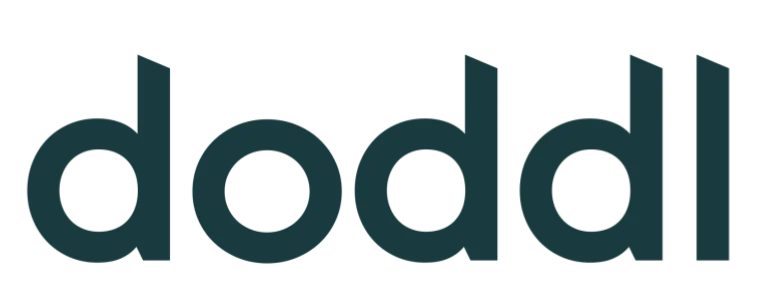How can I pay less interest on my mortgage?
There are three things that impact your mortgage repayments and the level of interest that you repay, these are; the amount you borrow, the interest rate applicable and the mortgage term.
If you reduce any of these three factors it will have a really positive impact on the interest that you repay.
When it comes to taking out a mortgage the first important consideration is what mortgage term you should opt for. Mortgages can be taken up to age at expiry 70 years, with maximum mortgage term 35 years.
In looking at how a mortgage term can impact the overall cost of credit if we take the example of a mortgage amount of €300,000 and interest rate of 3.6%.
A term 25 years would mean a repayment €1,518 p/mth and would result in an overall cost of credit €155,402
A term 30 years would mean a repayment €1,364 p/mth and would result in an overall cost of credit €191,017
Similarly, a term 35 years would mean a repayment of €1,257 p/mth and would cost you €228,072 in interest over the 35 years.
When taking out a mortgage it is therefore so important that you consider how much you can afford to repay. If you can afford to repay the higher monthly amount, choose the lower term, your future self will thank you.
On average, how much of a mortgage overpayment do lenders accept without penalty?
When you are on a variable rate you can overpay as you choose without any risk of penalty. When you opt for a fixed rate you are signing up to pay a set amount each month, the interest rate and repayment are fixed. When on a fixed rate if you choose to overpay then you could need to break out of the fixed rate contract, unless your mortgage lender allows for flexibility to overpay while on fixed. If your lender does not, then if you do break out of a fixed rate mid-term to overpay, you could have a penalty to do so. The penalty would be based on the incremental cost to the bank for your exiting the fixed contract early. In general if funding costs drop from when you lock in, you would be exposed to a penalty, if funding costs rise you would not.
Most, but not all, lenders offer some flexibility when it comes to fixed rates, this can range from 10pc of the monthly repayment allowable as overpayment, right up to 20pc of the capital balance allowable annually as overpayment.
If your income is variable in nature or you feel you may have a lump sum to overpay this may factor into your decision on fixed period you select if opting for a fixed rate. It is also really important to understand if your proposed mortgage lender does allow overpayment when fixed and if so on what terms.
If your lender does not allow overpayment and you want to lock down some security over your mortgage by fixing then you could look at a split rate, part fixed and part variable. You can then overpay on the variable element as you choose without risk of penalty.
Is it better to make monthly mortgage overpayments, or make lump sum payments a few times a year?
Overpayment whenever you have the means to do so is always worthwhile but the earlier you can repay the mortgage the better. When you take out a mortgage initially your repayment is made up of interest and capital. While the mortgage balance is high at the start of the mortgage, the proportion of interest in the repayment outweighs the capital amount you are clearing off the outstanding balance. That’s why at the end of the year when you get your mortgage statement you may be surprised to see that very little has been cleared off the outstanding mortgage.
Those with variable income may choose to make monthly or quarterly overpayments, self employed individuals sometimes like to overpay at the end of the year once their tax filing and liability is complete.
Your overpayment can be used to reduce your mortgage repayment i.e. mortgage balance decreases and if you keep to same term your monthly repayments will decrease. The alternative and most beneficial use of overpayment is to clear down the capital balance but you keep your repayments the same, this would result in a reduced mortgage term and lower cost of credit. When you are making the overpayment you need to discuss how you wish the overpayment to be applied, to reduce the monthly repayment or keep the repayment the same and reduce the mortgage term.
How much can you save by making mortgage overpayments? And how much time they could cut off their mortgage term.
How can I clear my mortgage faster?
Overpaying on your mortgage has a hugely positive impact on the your mortgage and can significantly reduce the interest that you will ultimately repay. It will also accelerates the repayment of the mortgage so your term is reduced.
Taking the same mortgage amount €300,000 and Interest rate 3.6% with a mortgage term of 30 years. Repayment on these terms would be €1,364 p/mth, overall cost of credit €191,017 over the 30 years.
If you were to overpay this mortgage by €100 per month then you will save €24,815 on interest over the mortgage term plus clear your mortgage 3 years and 5 months earlier than the original 30 year term.
What are the main benefits of overpaying on your mortgage?
The main benefit is to reduce the overall cost of credit or interest that you repay over the mortgage term. Interest adds no value to your mortgage so managing your interest rate, ensuring you keep it as low as possible and overpaying your mortgage are really beneficial things to do.
For those who take out terms of up to 35 years or expiry at age 70 years it is always wise to be conscious of how you can reduce the term downwards. Overpayment can reduce the term by accelerating the repayment of the mortgage but you can also elect to reduce the term downwards if income increases and a higher monthly repayment is affordable.
What are the risks associated with overpaying on your mortgage?
When overpaying your mortgage, you cannot easily redraw or recoup the fund from your mortgage. As such you need to be clear that any overpayment is surplus to your requirements.
For those with a buy to let property the interest you repay on the mortgage can be offset against the rental income when calculating any gain for tax purposes. As such you may want to consider overpaying on a home loan, on which you do not get tax relief, before a buy to let property. This is something to be discussed with your tax advisor before you would overpay on a buy to let mortgage.
Is overpaying on your mortgage better than topping up a pension or adding to your savings?
It depends on a number of factors and there is no one rule for all.
Overpaying your mortgage is out of net income, adding to your pension is out of gross income so there is a tax benefit to making pension contributions.
It is always advisable to have a savings nest egg to allow for loss of earnings or emergencies but once you are satisfied that you have savings in place and you are making a pension contribution it is wise to consider mortgage overpayment.
There is also the emotional element to clearing down your mortgage, to have that security of owning your family home. This is certainly something many people plan for and work towards and part of this can be overpaying your mortgage to accelerate repayment.
Looking to review mortgage terms, reduce rate, pay less interest, overpay? Our team can advise you – be sure to contact our team by providing some details via our website https://doddl.ie/ or calling our team on 016624600.




